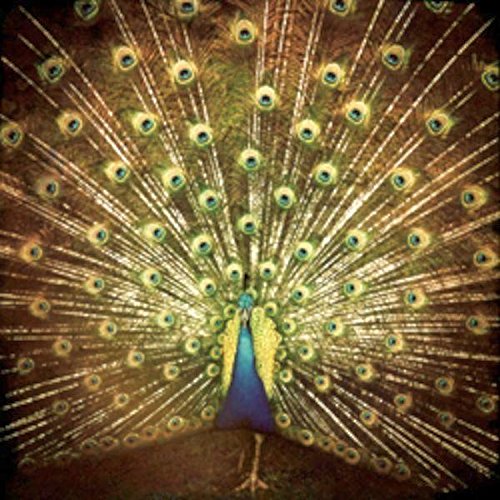
Ani DiFranco
Which Side Are You On?
Release Date: Jan 16, 2012
Genre(s): Pop/Rock
Record label: Righteous Babe Records
Music Critic Score
How the Music Critic Score works
Buy Which Side Are You On? from Amazon
Album Review: Which Side Are You On? by Ani DiFranco
Very Good, Based on 8 Critics
Based on rating 5/5
The world needs more radicals like Ani DiFranco: wry, sexy, as committed to beauty and joy as revolution. Her 17th LP is buoyed by communal seas: fellow political activists carrying the torch (the New Orleans art-funk update of the folk-standard title track); weed smokers weighing culture hypocrisy ("J"); a homeless mom baring her heart ("Life Boat"). Channeling multiple voices and styles, DiFranco rises to the cultural moment with a grin: "If you're not getting happier as you get older," she reasons on "If Yr Not," a deliciously noisy slow grind, "then you're fuckin' up." Related• Photos: Random Notes .
Based on rating B
To understand Ani DiFranco’s work as it stands now, it helps to know where she lives. The wandering feminist folkie veteran (we can call her that now, right?) has made her home in New Orleans over the last decade or so and it’s fueled both her well-known and well-worn political agita. With all that’s happened to that city of musical treasures, how could it not, right? It contributes to her ability to find the touching human vulnerability behind glib political sloganeering.
Based on rating 7/10
Which Side Are You On?, alt-folk legend Ani DiFranco's 17th studio album, and first in over three years, takes its title from the classic 1930s protest tune of the same name, a song made popular by another folk legend, Pete Seeger. It's a fitting sentiment, as DiFranco's been championing the spiritually, financially, and socially disenfranchised since her electrifying (acoustically speaking) 1990 debut, and standout tracks like "Life Boat," "Splinter," and the rousing title cut, the latter of which features Seeger himself on banjo and backing vocals, do little to tarnish her well-earned reputation as a D.I.Y. force of nature.
Based on rating 3/5
ANI DIFRANCO plays the Winter Garden Theatre April 21. See listing. Rating: NNN Even before her vocals come in, you can identify Which Side Are You On as an Ani DiFranco album by her signature acoustic guitar playing: a kind of gentle, funky "listen up." The album finds the influential alt/folk singer less angsty (she's happily married and raising a daughter) but more committed than ever to tackling personal and political themes like democracy, feminism, promiscuity and monogamy, the environment and abortion.
Based on rating 6/10
It would be easy to suggest that the usually prolific Ani DiFranco’s newest album, Which Side Are You On?, her first in nearly four years, is a direct response to the Occupy Wall Street movement that took hold last year. However, this would be a slight to her previous work, which has always been strongly political and often angry. DiFranco has been producing the same type of music for the last 20 years—strongly lyrically focused with an activist bent.
Based on rating 3.0/5
Until now, Ani DiFranco has never taken more than two years between albums. While that kind of delay might not be significant for most artists, the folk icon’s punctuality has always gone hand in hand with the relevance of her politically charged songs, and, to that end, Which Side Are You On? scans as a little unfashionably late. Of the album’s explicitly political songs, only “Promiscuity” hits on an of-the-moment issue in a way that highlights DiFranco’s potent, focused sense of outrage.
Based on rating C
In folk music, context is everything. The songs that once sparked revolutions are now quaint campfire jingles, and that’s a big problem for DiFranco, who has spent over two decades hijacking different sonic trains without letting her lyrical focus hop a new line. Here, she gets stuck in too many clunky Big Idea statements about equality and social politics.
Opinion: Excellent
Ani DiFranco begins with a summation of what she has done best in 20-plus years in the trenches. “Every time I open my mouth / I take off my clothes / And I’m raw and frostbitten / From being exposed,’’ she sings on “Life Boat. ’’ Consider it a preface to the bracing sentiments she explores on “¿Which Side Are You On?’’ marking a return to political rhetoric after its more relaxed predecessor, 2008’s “Red Letter Year.
'Which Side Are You On?'
is available now

